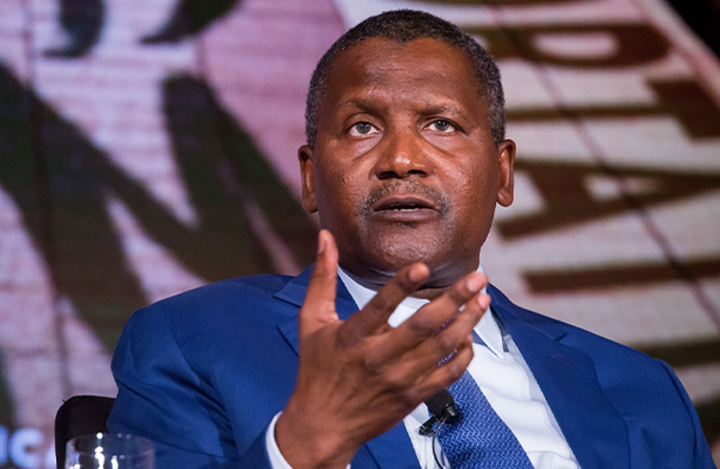Dangote Group has revealed plans to begin importing electric trucks early next year, as part of its strategy to modernise logistics, cut down emissions, and reduce dependency on fossil fuel-powered tanker trucks in its fuel distribution business. The announcement comes amid the rollout of the company’s ambitious compressed natural gas (CNG) fleet programme, and signals a further push toward cleaner energy use in the downstream petroleum sector.
At a recent press conference, Aliko Dangote confirmed that the company is working toward deploying electric vehicles (EVs) alongside its existing and incoming fleet of CNG-powered trucks. The electric trucks are scheduled for arrival in January 2026, and will be used to support Dangote’s logistics operations—especially in urban areas and for shorter hauls where electric drivetrains are more efficient. Dangote indicated that this move will help tackle some of the challenges experienced in fuel distribution: high operating costs, fuel volatility, carbon emissions, and the inefficiencies of conventional diesel tankers.

The initiative is intended to complement the rollout of 4,000 CNG tanker trucks already being imported for nationwide fuel distribution—a ₦720 billion investment by the refinery. That programme aims at reducing logistics costs and ensuring more stable delivery of Premium Motor Spirit (PMS) and diesel to retail outlets, manufacturers, telecom operators, and large consumers. The addition of electric trucks is meant to further reduce dependence on traditional fuels, particularly in contexts where electricity supply and charging infrastructure are viable.
Dangote executives emphasised that the electric trucks would initially be deployed where they make the most sense—urban centres, short distance routes, and secondary linkages—before thinking about scaling up. The company is reportedly in discussions with suppliers abroad to procure EVs fitted for tanker or bulk fuel transport, or alternatively adapted from existing electric truck models. There is also consideration of hybrid models or battery-powered trucks capable of partial CNG/diesel backup for areas lacking charging infrastructure.
The environmental angle is strong in Dangote’s presentation. The company points out the twin benefits of lower greenhouse gas emissions and reduced particulate pollution, particularly in densely populated urban areas where diesel tanker operations often degrade air quality. By switching to electric power in portions of its fleet, Dangote signals awareness of international expectations for cleaner energy and its own role in supporting Nigeria’s climate commitments.
From an economic standpoint, Dangote argues that electric electric drivetrain vehicles can reduce long-term operating costs. While upfront capital expenditure is higher—electric trucks are more expensive to acquire and require advanced charging infrastructure—fuel and maintenance savings over time may offset those costs, especially if electricity can be sourced reliably and at affordable rates. The company believes that, combined with its CNG fleet, the logistics cost savings will help ease pressure on fuel prices and improve supply reliability for end users.
Industry watchers note, however, that the shift to electric trucks will face significant hurdles. Reliable and widespread charging infrastructure remains limited in Nigeria; electricity reliability is still poor in many regions, and cost of electricity per kilowatt is high. Furthermore, battery technology suited for heavy-duty fuel transport—especially full or partial load tankers—must meet safety standards and ensure range adequacy. These are not trivial concerns, and Dangote is said to be studying these issues carefully.
There are also operational and regulatory challenges. Electric vehicles, especially large trucks carrying fuel, face regulatory and safety scrutiny. Dangote will need the cooperation of regulatory agencies to ensure licensing, approvals, safety regulations, and potential incentives are aligned. The company also has to address integration of maintenance systems, driver training, and possibly creating or partnering on charging stations.
To manage these challenges, Dangote says it plans to pilot the electric trucks in specific corridors, build out supporting charging infrastructure in key fossil fuel delivery routes, and collaborate with governments, power utilities, and private partners to enhance electricity reliability. The company also expects that as global EV adoption grows, costs of procurement, batteries, and support services will fall, improving the economics of the plan.
Labour groups and unions, particularly in the petroleum sector, have questioned whether the move could displace diesel tanker operators. Dangote responded by noting that the new EV and CNG fleet expansion is expected to create tens of thousands of jobs—for drivers, mechanics, fleet managers, and other ground support staff. The company emphasises that driver employment will continue, and that salaries and welfare packages for its drivers are above minimum wage levels, with additional benefits. Dangote also said union membership remains voluntary, but driver’s rights and working conditions are being considered in all new vehicle rollouts.
The broader impact of the importation of electric trucks could be large. By lowering logistics costs, reducing carbon emissions, and improving vehicle efficiency, Dangote’s strategy could help Nigeria meet parts of its environmental goals while also helping alleviate inflationary pressures driven by transport costs. If successful, this could set a precedent for other players in the petroleum downstream and logistics sectors to follow suit.
Support InfoStride News' Credible Journalism: Only credible journalism can guarantee a fair, accountable and transparent society, including democracy and government. It involves a lot of efforts and money. We need your support. Click here to Donate
